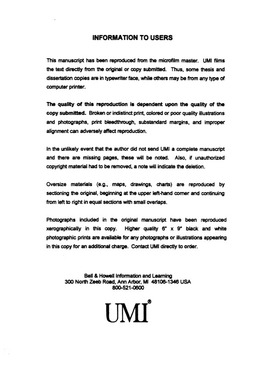| dc.contributor.advisor | Henderson, George, | en_US |
| dc.contributor.author | Colangelo, Albert John. | en_US |
| dc.date.accessioned | 2013-08-16T12:30:56Z | |
| dc.date.available | 2013-08-16T12:30:56Z | |
| dc.date.issued | 2000 | en_US |
| dc.identifier.uri | https://hdl.handle.net/11244/5979 | |
| dc.description.abstract | The prediction was that participants' supervisors' leadership styles would be significantly related to all dimensions of followership measured by the followership survey. As determined by factor analysis of responses to the survey, these dimensions were (1) active engagement, (2) critical, independent thinking, (3) passion, and (4) team mindedness. Results showed that supervisor's leadership style was not significantly related to followership on all four dimensions. However, it was significantly correlated to three dimensions of followership---active engagement, passion, and team mindedness---with participants who had democratic supervisors scoring significantly higher on these three dimensions than those with autocratic or laissez-faire supervisors. Analysis of covariance showed that leadership style was confounded with other variables and that trust, job satisfaction, and commitment were instead causally related to followership. | en_US |
| dc.description.abstract | This study investigated the relation of immediate supervisor's leadership style to followership among a sample of 567 United States Air Force enlisted members attending airman leadership school, a professional military education program, at three different locations in Europe. Participants completed Kelley's (1992) followership survey, which measured followership, and the LEAD Other questionnaire taken from Hersey's (1993) Leader Effectiveness and Adaptability (LEAD) instrument, which determined the leadership style of the participants' immediate supervisors. Personal, supervisory, and organizational information was also gathered from the participants. The data were analyzed by analysis of variance (ANOVA), analysis of covariance (ANCOVA), and Scheffe's post hoc comparisons test. | en_US |
| dc.description.abstract | The findings suggest that the democratic leadership style, which is high in both task and relationship behaviors, may better foster the followership dimensions of active engagement, passion, and team mindedness than either the autocratic or laissez-faire styles by producing better levels of trust, job satisfaction, and commitment. The findings have practical implications for both public and private organizations that seek to promote leadership styles that contribute most to improving the individual performance of subordinates. | en_US |
| dc.format.extent | xi, 110 leaves ; | en_US |
| dc.subject | Command of troops. | en_US |
| dc.subject | Business Administration, Management. | en_US |
| dc.subject | Leadership. | en_US |
| dc.title | Followership: Leadership styles. | en_US |
| dc.type | Thesis | en_US |
| dc.thesis.degree | Ph.D. | en_US |
| dc.thesis.degreeDiscipline | Department of Human Relations | en_US |
| dc.note | Chair: George Henderson. | en_US |
| dc.note | Source: Dissertation Abstracts International, Volume: 61-05, Section: A, page: 1934. | en_US |
| ou.identifier | (UMI)AAI9972517 | en_US |
| ou.group | College of Arts and Sciences::Department of Human Relations | |
